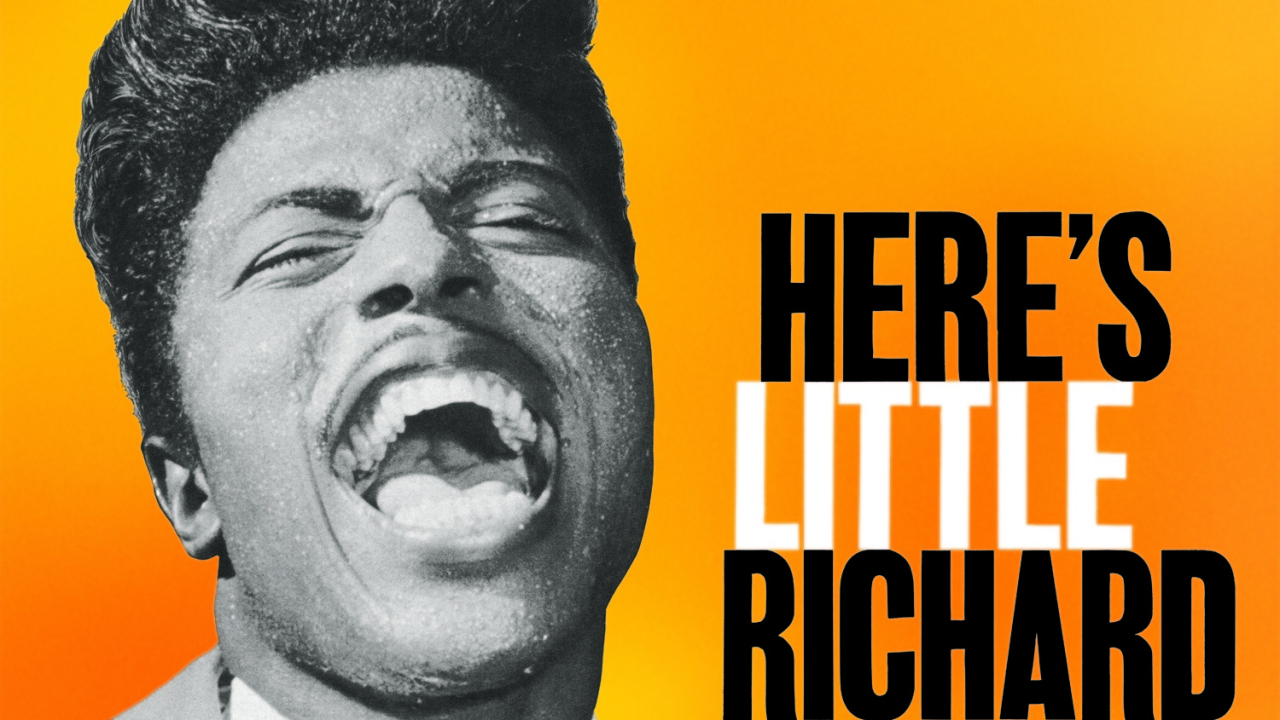Vinyl Treasures: Little Richard - Here's Little Richard
In part two of our new series, TeamRock's Matt Stocks presents his guide to the key albums in the history of rock.

Select the newsletters you’d like to receive. Then, add your email to sign up.
You are now subscribed
Your newsletter sign-up was successful
Want to add more newsletters?

Every Friday
Louder
Louder’s weekly newsletter is jam-packed with the team’s personal highlights from the last seven days, including features, breaking news, reviews and tons of juicy exclusives from the world of alternative music.

Every Friday
Classic Rock
The Classic Rock newsletter is an essential read for the discerning rock fan. Every week we bring you the news, reviews and the very best features and interviews from our extensive archive. Written by rock fans for rock fans.

Every Friday
Metal Hammer
For the last four decades Metal Hammer has been the world’s greatest metal magazine. Created by metalheads for metalheads, ‘Hammer takes you behind the scenes, closer to the action, and nearer to the bands that you love the most.

Every Friday
Prog
The Prog newsletter brings you the very best of Prog Magazine and our website, every Friday. We'll deliver you the very latest news from the Prog universe, informative features and archive material from Prog’s impressive vault.
You wanted the best, you got the best. Ladies and gentleman, Mr Little Richard Penniman.
The self-proclaimed ‘Queen’ of rock n roll. It’s a spot on analogy too. Elvis Presley’s sexually provocative performance style may have been so outrageous it was deemed unfit for family viewing, but Little Richard’s uninhibited and unpredictable assault threatened to overturn the very values on which conservative America was built.
He was the first African American performer to attract mixed race audiences to national concerts, and during a time when those musicians were expected to operate within the perimeters of the confinements imposed upon them, and an age when the notion of being openly gay was absolutely unheard of, a flamboyant black rock star dressed in drag was not only a totally alien concept, but one that would’ve challenged the ‘social norm’ in unprecedented ways.
Thankfully, we now live in a more accepting world where tolerance is much higher (although there’s still a way to go) but during the 1950s Little Richard would undoubtedly have had to fight - in many cases, for his life - to preach the rock n roll gospel. In doing so, he fearlessly paved the way for the rock n roll rogues that followed - Mick Jagger, David Bowie, Bon Scott, Gene Simmons, Lou Reed, and Lemmy all owe Little Richard a major debt. As does anyone who plays rock n roll music, really.
- Vinyl Treasures: Jerry Lee Lewis - Live at the Star Club, Hamburg
- Our TeamRock+ offer just got bigger. And louder.
- 19 songs that would never have existed if it wasn't for Chuck Berry
- Little Richard - Mono Box: The Complete Specialty & Vee-Jay Albums album review
As a recording artist, Little Richard’s impact on the modern musical landscape can’t be over-emphasised. Every track on his debut record Here’s Little Richard is a stone-cold classic. The album shifts instantly into high-speed gear with opener Tutti Frutti. A hard hitting, wailer of track, it contains arguably the greatest lyric ever written, and from the moment Little Richard screamed those immortal words – “A-wop-bop-aloo-bop-a-wop-bam-boom!” - the world would never be the same. Tutti Fruitti became the blueprint not only for Little Richard’s sound, but also for the rock genre as a whole.
It wasn’t so much the music that made Here’s Little Richard unique. The backing band were solid and consisted of some of the best players around, but the piano parts largely emulated the boogie-woogie style already popularised by Fats Domino, and the rhythm and horn sections were fairly typical of the majority of R&B records around at this time. What made the album distinct was Little Richard’s totally untameable, anarchic vocal style. His voice stands out so hard - a finely tuned instrument capable of phenomenal power and range, from the soulful heartache of Oh Why? and the soft and tenderness on display in Baby, to the maximum rock n roll of Rip It Up and the howling banshee heard on Jenny Jenny.
The real show stopper is Long Tall Sally though. Little Richard’s voice on this absolute stomper still sounds as outrageous, aggressive and contagious as ever. It’s been covered by Elvis Presley, Eddie Cochran, The Beatles and The Kinks to name but a few, but nothing compares to the original. This is rock n roll in its purest, rawest form, sung with the kind of unparalleled, charismatic showmanship only Little Richard could pull off - if you’re in doubt, just listen to the rapidity and bite with which he delivers the “duck back in the alley” line. There’s only one Little Richard.
Sign up below to get the latest from Classic Rock, plus exclusive special offers, direct to your inbox!
DJ, presenter, writer, photographer and podcaster Matt Stocks was a presenter on Kerrang! Radio before a year’s stint on the breakfast show at Team Rock Radio, where he also hosted a punk show and a talk show called Soundtrack Apocalypse. He then moved over to television, presenting on the Sony-owned UK channel Scuzz TV for three years, whilst writing regular features and reviews for Metal Hammer and Classic Rock magazine. He also wrote, produced and directed a feature-length documentary on Australian hard rock band Airbourne called It’s All For Rock ‘N’ Roll, and in 2017 launched his own podcast: Life in the Stocks. His first book, also called Life In The Stocks, was published in 2020. A second volume was published in April 2022.

